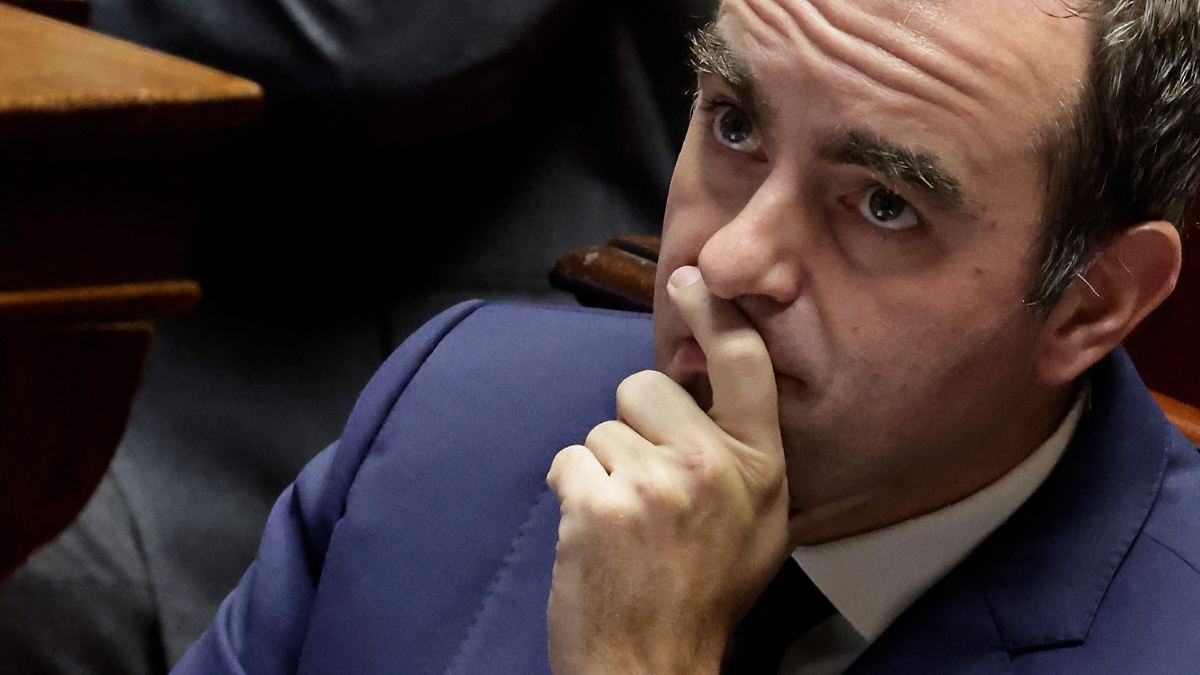Government crisis in France: National Assembly rejects wealth tax

Unstable foundation: France's Prime Minister Lecornu in the National Assembly.
(Photo: picture alliance/dpa/AFP)
The budget dispute in France has entered its next phase: The left is making its approval of an austerity package contingent on the introduction of a wealth tax. However, this bill has failed to secure a majority in the National Assembly.
The French National Assembly has rejected a proposal from the left to introduce a wealth tax. 228 members of the lower house voted against the measure on Monday evening, while 172 voted in favor. The Socialists had threatened to bring down the government last week if the draft budget did not include a tax on assets exceeding €100 million. This leaves it uncertain whether Prime Minister Sébastien Lecornu's government will secure the necessary parliamentary majority to pass next year's budget.
The so-called Zucman tax, named after the economist Gabriel Zucman, would have imposed a tax rate of at least two percent on assets in the hundreds of millions. According to Zucman's calculations, the French state could have collected up to 20 billion euros annually from the tax; he stated that only 1,800 households nationwide would have been affected.
The government, as well as the opposition right-wing National Rally, rejects the tax, arguing that it would target business assets. They contend it would negatively impact France's economic competitiveness and lead to job losses. The National Assembly also rejected a watered-down version of the Zucman tax, which would have exempted family businesses and companies classified as "innovative."
Left Party: No fear of new electionsFollowing the failure of the Zucman tax, the leader of the Socialists, Olivier Faure, said there was "no possibility" of voting on the draft budget in its current form. Faure also advocated reinstating the ISF wealth tax, which was abolished in 2017 and applies to assets of at least €1.3 million.
At the same time, he urged Prime Minister Lecornu and the MPs to continue seeking a compromise – or face a vote of no confidence and the threat of new elections. No one on the left, he said, was afraid of new elections. Lecornu himself emphasized his rejection of the wealth tax proposal, stating that there was no such thing as a "miracle tax".
Pension reform suspendedAt the beginning of the month, Lecornu suspended the long-contested and already passed pension reform, thereby ensuring that the Socialist MPs did not vote in the no-confidence motions against the government brought by left- and right-wing populists in the National Assembly.
In mid-October, Lecornu presented his 2026 budget proposal, which aims to reduce the budget deficit to 4.7 percent of gross domestic product (GDP). To achieve this, the government plans savings of €17 billion and additional revenue of €14 billion. New borrowing of 5.4 percent is still expected this year. The EU deficit limit is actually three percent of GDP.
In recent weeks, rating agencies Fitch and S&P had downgraded France's credit rating due to the financial situation and existing political instability.
Source: ntv.de, mau/AFP
n-tv.de





